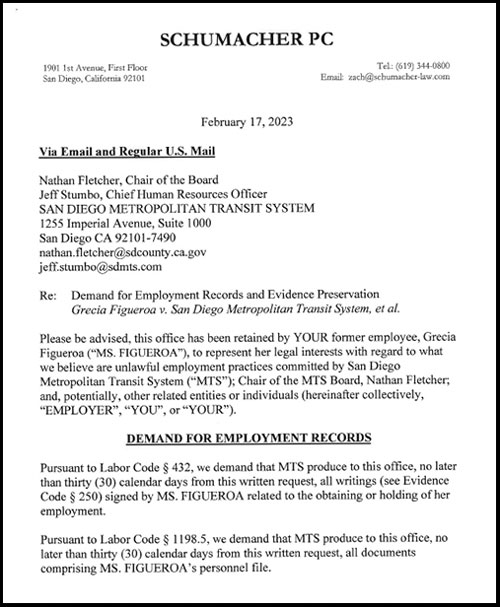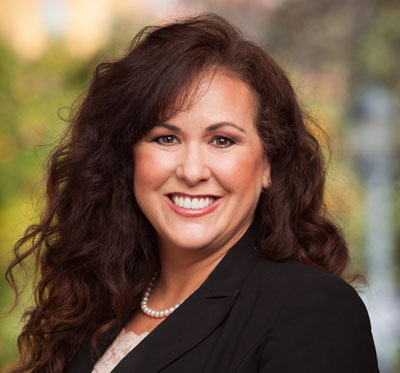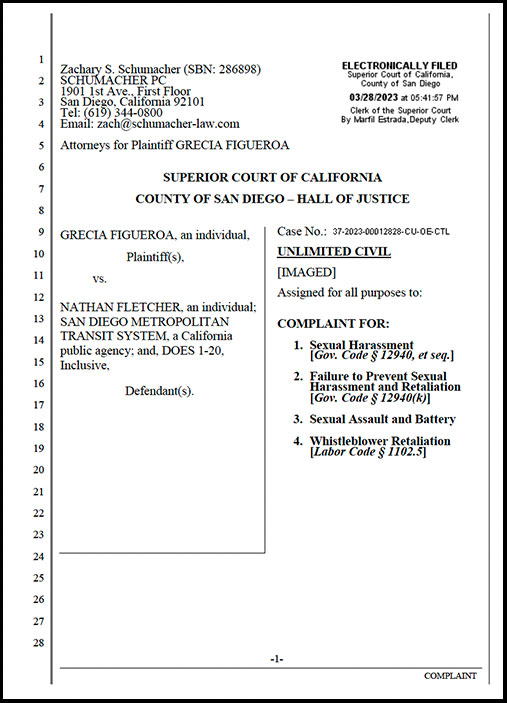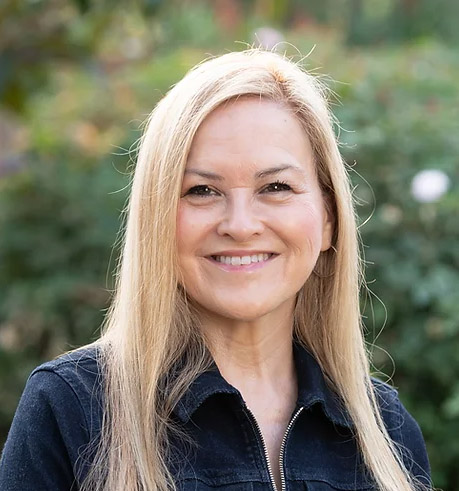Fletcher Negotiated with Accuser for Weeks Before Admission

Arturo Castañares
Editor-at-Large
A lawyer representing San Diego County Supervisor Nathan Fletcher reached out to the attorney representing a fired female public employee and began negotiating a hush-money settlement nearly six weeks before Fletcher unexpectedly announced he would end his campaign for State Senate and seek rehab treatment.
The timeline now shows that Fletcher actively engaged in negotiations in an attempt to save his political career and personal relationship before abandoning his campaign and describing the process as "an attempt by a former colleague to obtain millions of dollars."
Zachary Schumacher, the lawyer representing Grecia Figueroa, a now-former Metropolitan Transit System (MTS) employee, sent a February 17th letter to Fletcher and MTS outlining "unlawful employment practices" committed against Figueroa by Fletcher and MTS.
Figueroa was a Public Relations Specialist for MTS and was fired from the public transit agency on February 6, the same day Fletcher announced he was running for the State Senate in next year's election.
The letter, sent to Fletcher's official county email address, as well as to Jeff Stumbo, MTS Chief Human Resources Officer, sought records and evidence related to potential claims for discrimination, sexual harassment, sexual assault, and retaliation, a usual first step before a formal lawsuit is filed.

LETTER TO FLETCHER & MTS
DOWNLOAD FULL LETTER
The following day, a lawyer representing Fletcher reached out to Schumacher and offered to begin negotiating a settlement, but requested that the issue be kept quiet, asking Schumacher not to send any further correspondence to MTS or to Fletcher's official email where his county staff could read it.
Fletcher's lawyer, who specializes in personal injury and wrongful death cases, not employment law, made the first offer of money to settle Figueroa's claims, but the figure was far below what Schumacher's client would accept. The negotiations continued over the weekend.
The following week, an outside lawyer from a highly-respected law firm representing MTS contacted Schumacher, acknowledging having received the February 17th letter addressed to Stumbo.
When Schumacher explained that he was already engaged in negotiations with Fletcher's lawyer, the MTS attorney said he would stand by and allow the two sides to continue working toward a settlement. It is now clear that MTS became aware of the potential claims just a few days after the February 17th letter was sent.
The negotiations between Schumacher and Fletcher's attorney continued for nearly four weeks with various dollar amounts having been discussed. Fletcher's attorney continued to convey an interest in resolving the matter quietly because it would affect Fletcher's political career and marriage.
After several weeks, another lawyer representing Fletcher suddenly took over the negotiations. That attorney, from a national law firm specializing in labor and employment law, continued working toward a settlement.
But, just a few days later, Fletcher's new lawyer said the negotiations may have stalled because Fletcher's wife, Lorena Gonzalez Fletcher, became aware of the situation and was upset, suggesting that Fletcher's wife and staunch political ally had not known about the ongoing negotiations.

LORENA GONZALEZ FLETCHER
Gonzalez Fletcher, who married Fletcher on January 1, 2017, served in the State Assembly until January 2022 when she resigned to head the California Labor Federation, a grouping of over 1,200 labor unions that wields huge political power through its campaign contributions and support of candidates.
On Sunday, March 26th, Fletcher's second attorney said she would prepare a best and final settlement offer by noon the next day.
Just a few hours later, Fletcher sent out a press release announcing that he was ending his nascent campaign for State Senate and seeking treatment for PTSD, trauma, and alcohol abuse.
"For many years, I have been suffering from devastating post traumatic stress associated with combat piled on top of intense childhood trauma that has been exacerbated by alcohol abuse," Fletcher wrote. "However, it is clear I need to focus on my health and my family and do not have the energy to simultaneously pursue a campaign for the State Senate."
Fletcher's candid message of seeking treatment, however, did not include any mention of the potential claims made by Figueroa or the fact that he had been engaged in protracted negotiations to keep the claims from becoming public.
Several people and elected officials posted supportive messages in response to Fletcher's announcement, including local Congressman Scott Peters.
"Nathan-this is painful for us to learn and I'm so sorry," Peters posted on Twitter the day after Fletcher's announcement. "I'm 100% behind you as you take care of yourself and your family."

CONGRESSMAN PETERS TWEET
As promised, Fletcher's attorney conveyed a best and final settlement offer on March 27th, but the number was lower than the previous amount they had discussed. The final offer was delivered even after the lawyer conveyed that Gonzalez Fletcher was upset about the situation.
After the negotiations proved to be fruitless, Schumacher prepared the final version of the lawsuit and filed it on March 28.

FIGUEROA LAWSUIT
DOWNLOAD FULL DOCUMENT
The lawsuit, naming Fletcher and MTS as defendants, claims sexual harassment, failure to prevent sexual harassment and retaliation, sexual assault and battery, and whistleblower retaliation.
Figueroa's lawsuit outlines repeated interactions with Fletcher which she says were unwelcomed, including a groping incident in a conference room within the MTS building just after an official Board meeting.
The lawsuit also includes screen images of text message between Fletcher and Figueroa where he invites her to meet up late at night, explaining how he could ditch his taxpayer-funded security detail to avoid being discovered.
The morning after the lawsuit was filed, Fletcher released a joint statement with his lawyer in response to Figueroa's claims.
"My client and his wife have been facing an attempt by a former colleague to obtain millions of dollars," Fletcher's lawyer wrote. "The simple truth is that Ms. Figueroa pursued my client, their interactions were consensual and Mr. Fletcher does not and never had authority over her employment."
Fletcher's attorney sought to portray the interactions as consensual even though Figueroa was an employee of the public transit agency where Fletcher served as the Chairman through his position as an elected County Supervisor.
The Supervisor admitted he engaged in "consensual interactions" and characterized Figueroa's demands as a "threat."
"Last year, I made a terrible mistake engaging in consensual interactions with someone outside my marriage," Fletcher wrote in his second announcement. "However, this individual and an attorney demanded millions of dollars from me and my family with the threat of not only embarrassment but a willingness to lie about the circumstances and nature of the interactions," Fletcher added.
Immediately after Fletcher's statement, members of the public began to demand his resignation based on the claims in the lawsuit and his admission of seemingly improper interactions with an employee.
By 10:30 pm that same day, Fletcher announced he would be resigning his seat on the Board of Supervisors effective at the end of his treatment, without specifying an exact date.
Then the following day, Fletcher made another announcement that he "resigned and notified the County of San Diego that the effective date for resignation will be Monday, May 15, 2023, at 5:00 p.m."
Again, the public reaction was swift, criticizing Fletcher for delaying his resignation for unknown reasons. Many online comments claimed he was stretching out his employment to receive two more paychecks, while others argued he was abusing his medical leave benefits.
Then on April 4th, La Prensa San Diego received information from a source in the Silicon Valley area that a Santa Clara politician was the preferred candidate to replace San Diego County's Chief Administrative Officer (CAO), the official in charge of day-to-day functions of its nearly 20,000 employees and $7.15 billion annual budget.
The County had conducted a search to replace retiring CAO Helen Robbins-Meyer who announced her departure last year after ten years leading the County. Although several local candidates for the position were considered, it appeared that a majority of the Supervisors chose an out-of-town finalist.
La Prensa San Diego was the first media outlet to report that Cindy Chavez, an elected Santa Clara Supervisor and former San Jose City Councilmember, had been offered the position, but the decision required a final approval vote planned for May 2nd. San Jose media outlets later confirmed Chavez was the selected candidate for the position.

CINDY CHAVEZ
Chavez had previously served as the leader of the South Bay Labor Council, the Silicon Valley area's association of labor unions. Gonzalez Fletcher served in a comparable position when she led the San Diego-Imperial Counties Labor Council before being elected to the Assembly, and Gonzalez Fletcher donated $1,400 to Chavez's failed campaign for San Jose Mayor last year, reflecting their similar backgrounds and close ties.
Given the political makeup of the Board of Supervisors with three Democrats and two Republicans, Fletcher's vote as the tie-breaker to hire Chavez seemed to be the reason for his delayed resignation date.
Later the same day, Republican Supervisor Jim Desmond became the first local elected official to call for Fletcher's immediate resignation.
"San Diego County faces many pressing issues, including homelessness, affordable housing, and inflation. Mr. Fletcher's actions are causing unneeded distractions, and his resignation should be effective immediately," Desmond wrote.
Once again, social media posts began to criticize Fletcher for setting his resignation date based on returning to vote to hire a CAO of his choosing. Over the next few days, several elected officials began to demand Fletcher's immediate resignation.
On April 6th, the MTS Board of Directors held both its public meeting, as well as a closed session with lawyers, to discuss the pending issues with Fletcher. Board members expressed frustrations that they were not informed of the threat of litigation before the lawsuit became public.
The MTS Board voted not to indemnify or defend Fletcher as an individual named in the lawsuit, but, in the end, the public agency may be held liable for damages and legal fees if Fletcher is found to have been acting as an agent of MTS when he engaged in his conduct with respect to Figueroa.
San Diego City Councilwoman Vivian Moreno became the first elected Democrat to call for Fletcher's immediate resignation, saying "his conduct has revealed he is not fit to represent San Diegans in an elected role."
Several other Democratic elected officials, including Congressman Scott Peters, Congresswoman Sara Jacobs, Assemblymembers Dr. Akilah Weber and Chris Ward, and others joined in calling for Fletcher's immediate resignation.
On April 9th, Board of Supervisors Chair Nora Vargas announced that she was calling for Fletcher's immediate resignation and that she would introduce a resolution at a special meeting on April 11 for a vote of "No Confidence" in Fletcher, setting up a potential for his four colleagues to vote for a ceremonial yet damaging action undermining his political survival.
Although the County Board has no authority to remove Fletcher from his elected position, such a vote would make his continued presence on the Board virtually untenable.
Both Supervisor Vargas and Supervisor Terra Lawson-Remer, the other Democrat on the five-member board, have indicated that Fletcher will have no role in selecting the Chief Administrative Officer. Without Fletcher's vote, political experts predict that the Board will be unable to select a new hire, so the search process may have to be restarted.
Whenever Fletcher resigns, the Board can choose to fill the remainder of his four-year term by either appointing a new member or calling for a special election that could be held in November.
At least three of the remaining four Supervisors would have to approve the selection of an appointment or the calling of a special election.
Although some elected bodies have procedures where a special election must be called if more than half of an unexpired term remains, the County does not have that restriction and the Board could appoint someone to fill the remaining 42 months of Fletcher's term.
The San Diego Board of Supervisors is scheduled to meet on Tuesday, April 11 at 9:00 a.m.
Gonzalez Fletcher did not respond to a request to comment for this story.







